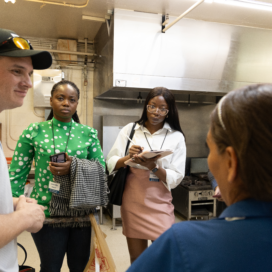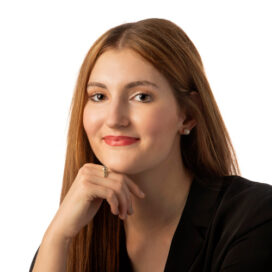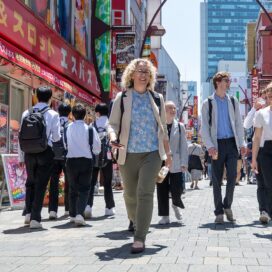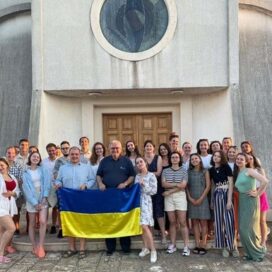Gaming out research
Notre Dame partners with Tel Aviv University to explore the social impact of online gaming in the MENA region
Published: September 8, 2023 / Author: Brendan O’Shaughnessy (ND '93)
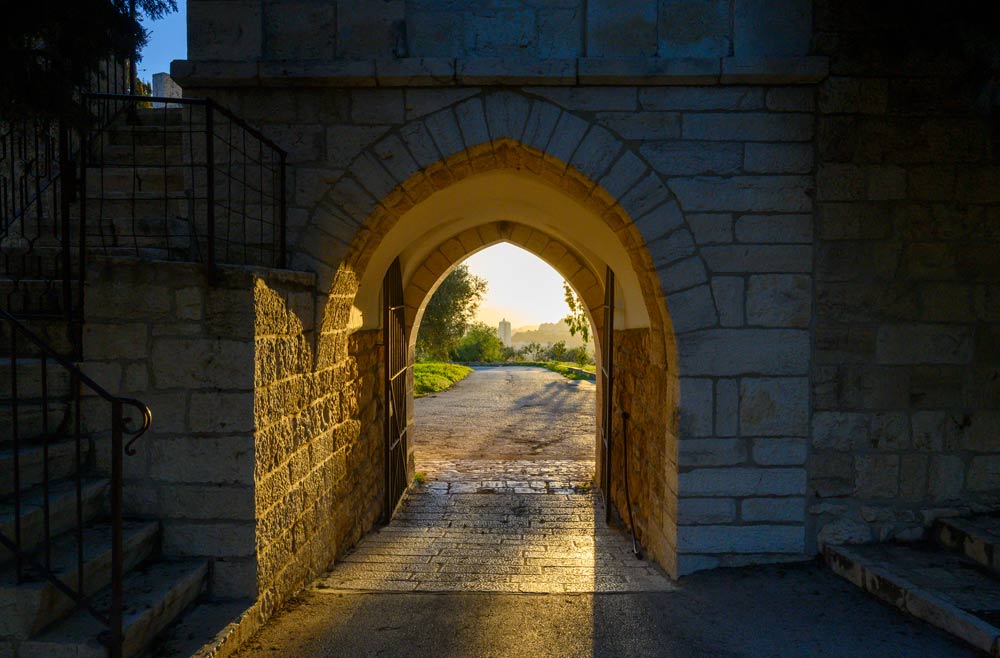
Tantur
Strolling through the Old City of Jerusalem this summer was a life-changing experience for Corey Angst.
The smell of spices from every region of the world wafted through the crowded streets. The babble of languages crescendoed into cacophony. For visitors to the ancient biblical city, the sights, sounds, smells and heat can be overwhelming.
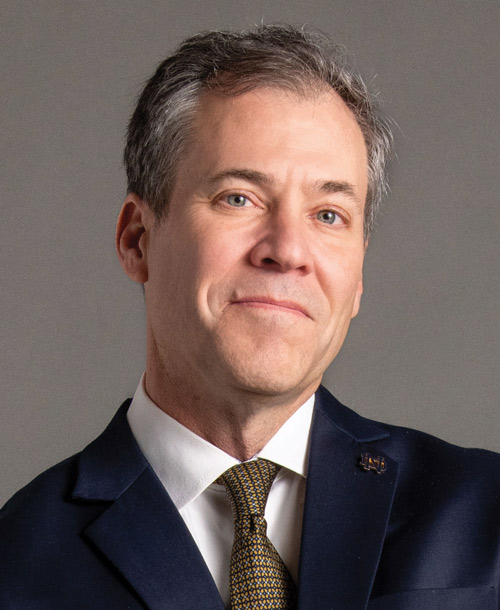
Corey Angst
“It floods you with emotions. It floods you with everything,” said Angst, the Jack and Joan McGraw Family Collegiate Professor of IT, Analytics, and Operations at the University of Notre Dame’s Mendoza College of Business. “I don’t think there’s a more powerful place in the world for multiple different religions. For us, it’s where Christ lived. But it struck me how important Jerusalem is to so many religions. You can have your own perceptions before you go, but when you’re there, it just hits you.”
University of Notre Dame at Tantur is a hilltop oasis of peace in a region in conflict. Standing on the balcony, Angst could overlook part of Jerusalem and find the seclusion to conduct a workshop in June about the social impact of online gaming in the MENA (Middle East and North Africa) region.
But the tension is never forgotten. Look in the other direction toward Bethlehem, Christ’s birthplace, and you can see the wall that separates Palestinian territory from Israel.
“It makes me wonder how deep we want to go with this,” Angst said. “Are there certain things that we should or shouldn’t be studying that are going to be really controversial?”
For instance, should game designers allow players to choose a hair-covering hijab for their online avatar, a player’s representation in the game world? Can an avatar’s gender identity be fluid?
Rather than a conference where academics are invited to present existing research, the workshop at Tantur was designed to clarify and facilitate future research. “It was what we call a research agenda workshop, where people have some ideas or topics they want to explore, but we haven’t yet established what the specific research questions are,” Angst said.
The origin of the workshop happened partly by chance. Angst attended a previous workshop on campus organized by colleague Nick Berente, professor of IT, Analytics, and Operations who directs the Gaming Analytics & Business Research Lab at Mendoza. Many of the academics in attendance came from Tel Aviv University in Israel. The executive director of Tantur, Daniel Schwake, also participated and asked Angst if he’d be interested in doing something similar at Tantur.
Gaming is not exactly Angst’s wheelhouse. He conducts research on the societal impacts of IT and technology use, and how — or if — IT creates value, with a special focus on health care.
But Angst was familiar with the work of several researchers in Israel, especially Dov Te’Eni and Yossi Mann. He liked the idea of forming a research collaboration with them and others, and he spent about nine months working with them to prepare for the workshop. They considered other IT topics, such as online gambling in the region, but came back to gaming and its impact on society.
“We started to realize that this was bi-directional,” Angst said. “Meaning, there are certain cultural things that have impacted the technology, but there are also certain technological things we’re doing that are impacting the culture.”
Talking with people in the gaming industry, including a firm that designs avatars, convinced Angst that the topic is important because people take how they are represented in games very seriously. The clothing avatars wear and the weapons or magical elements the gamer chooses can be specific to cultural elements in different parts of the world.
In the other direction, certain games are not played in some countries for various reasons, although Angst said that mentality is shifting quickly, and more games are becoming acceptable.
“The intent was that we come out of this workshop with at least a couple of research projects, where we form small groups that are interested in those topics and then pursue them,” he said. “And that’s exactly what we have done.”
The projects are long term, he said, and more likely to be measured in years than in months, because they are looking at interesting problems. That collaboration was exactly Schwake’s intent for this conference as well as another Notre Dame program held at Tantur this summer.
Called “Reimagining Business Excellence,” that program brought together a highly diverse group of university experts and industry executives to focus on ethical business leadership in the MENA region.
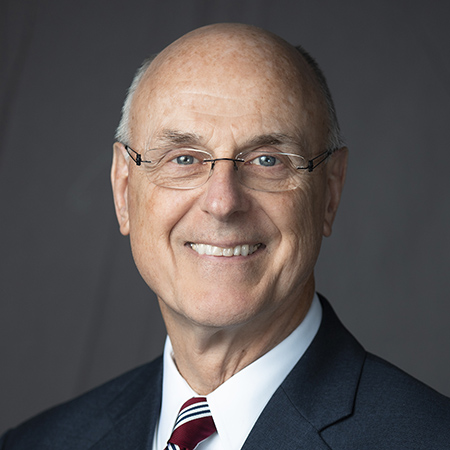
Tim Schlindwein
Tim Schlindwein (BBA ’69), a Chicago investment manager, provided funding for both events. Schlindwein traveled on a Notre Dame mission trip to the Holy Land about a decade ago, where he met people from Tel Aviv University and ended up on the board of governors. He then created an endowment to fund research collaborations between the two universities.
“I was hopeful that we could get something going with Mendoza because that’s where my background was,” said Schlindwein, who is keen to see the relationship between Mendoza and the Tel Aviv business school continue to grow. “We’ve opened the door with Corey Angst on the ground over there with his counterparts. I think Daniel’s leadership at Tantur can keep things alive and fresh in the minds of those who have been engaged so far.”
Schwake, who has a background in international business, said he recruited Angst as a great fit to work with Tel Aviv University, which is part of the city’s booming tech industry.
“The motto of Mendoza is ‘Grow the Good in Business,’ and there is a significant emphasis on ethical questions and social responsibility questions,” Schwake said. “And it was kind of a no-brainer that it would be really great if we’re able to convince people from Mendoza to be willing to work with us and to think with us.”
Angst said the Tantur staff and facility were crucial to the success of the event, which exceeded expectations with nearly 20 attendees.
“Daniel is great at making connections, and he knows tons of people,” Angst said. “He can literally and figuratively speak the languages of the region. I just hope that more of us — not just at Mendoza but across the University — continue to use the facility.”
Other Mendoza faculty also participated in the conference. Kristen Collett-Schmitt, a finance professor and associate dean for innovation and inclusion at Mendoza, presented on the economic growth of gaming in the MENA region. Wendy Angst, teaching professor of Management & Organization at Mendoza, led a design thinking session to sift through the nine potential research questions identified beforehand.
Corey Angst said the session helped consolidate their focus into a couple of key areas that they are pursuing now. The primary focus is on how game developers respond to cultural and identity-related issues when they design game features. Since the conference, collaborators have developed a research plan and are working to get multiple approvals for human subject research. Data collection should take about a year, followed by some research papers.
Angst’s Israeli research partners include include Te’Eni, Vered Pnueli, an avatar designer and head of the master’s degree program in digital game design and development at Shenkar College, and Inon Zuckerman, a faculty member in the Department of Industrial Engineering and Management at Ariel University who presented on using electrical sensors to measure the brainwaves of people playing games. Other colleagues focused on societal implications of gaming and other topics.
“One wants to use games for peace building,” Angst said. “But that’s probably a ways off for us. We need to understand this stuff before we can say that you can actually use it for the purpose of creating bonds between people.”
Related Stories
